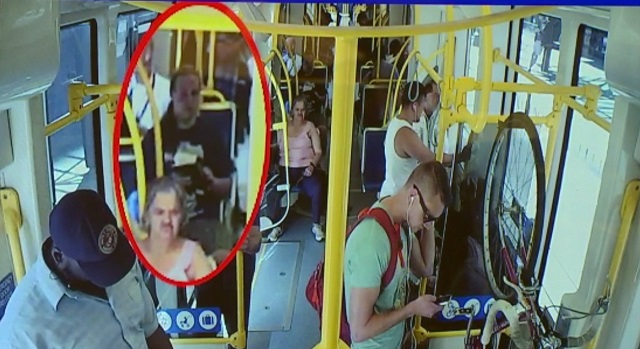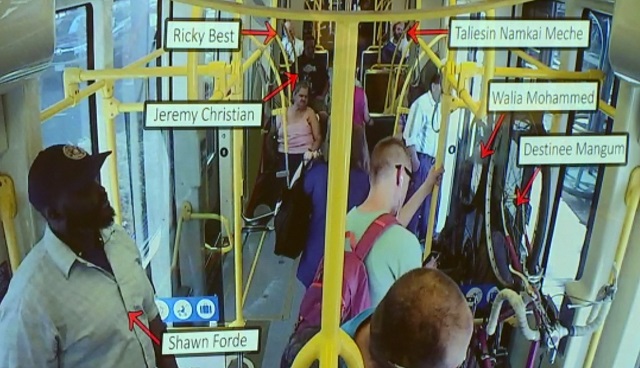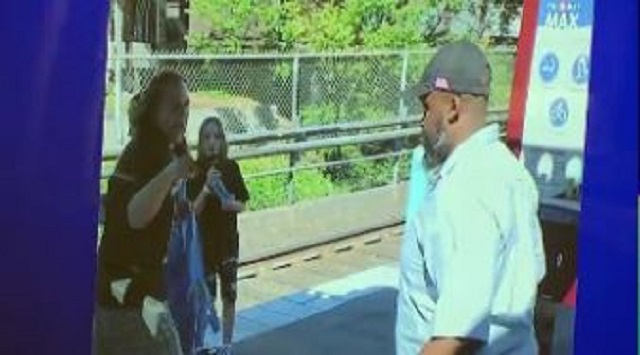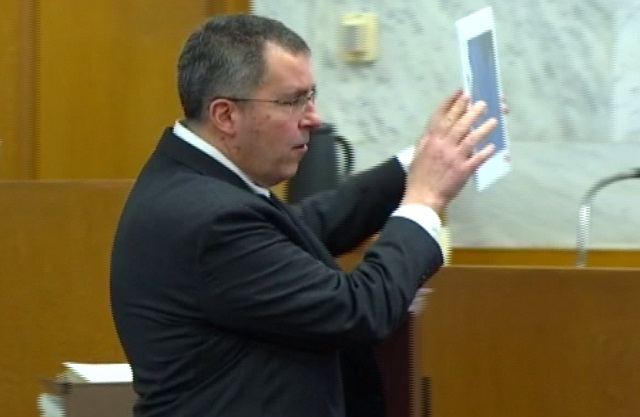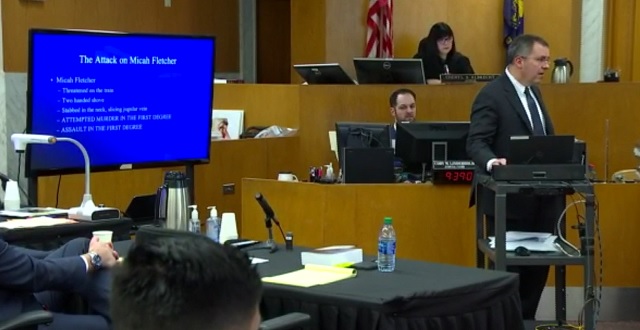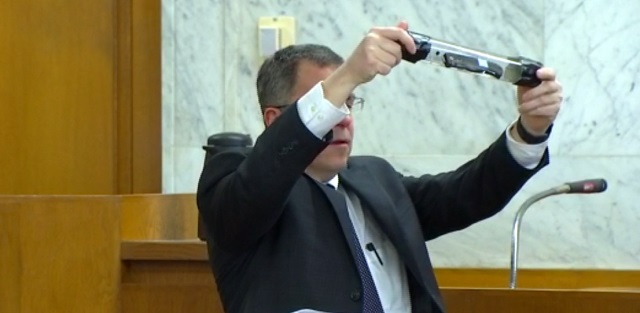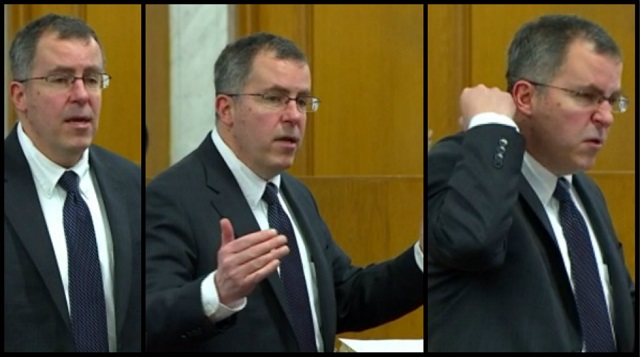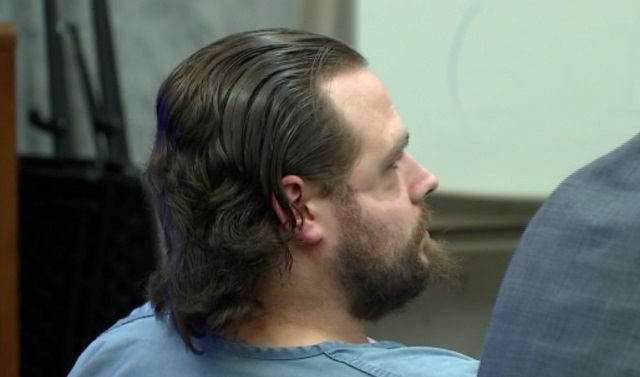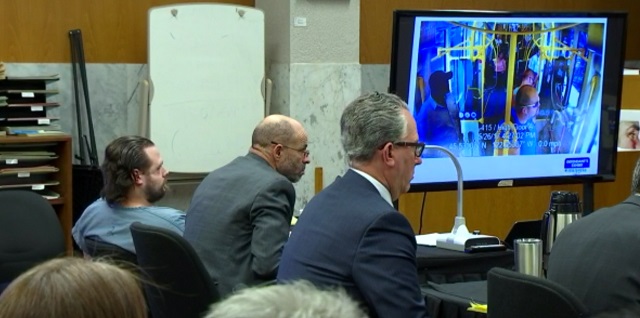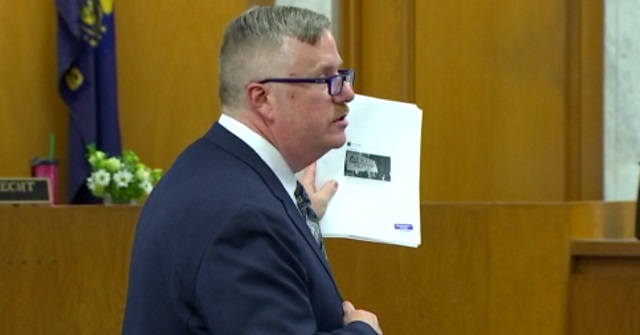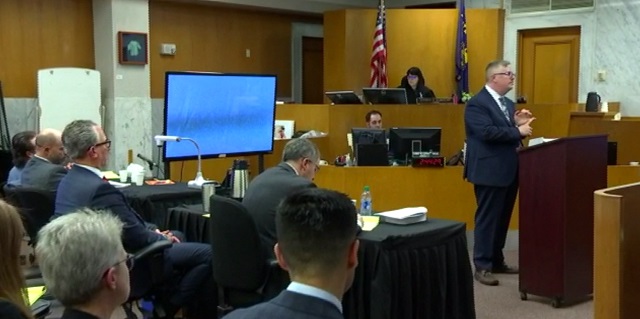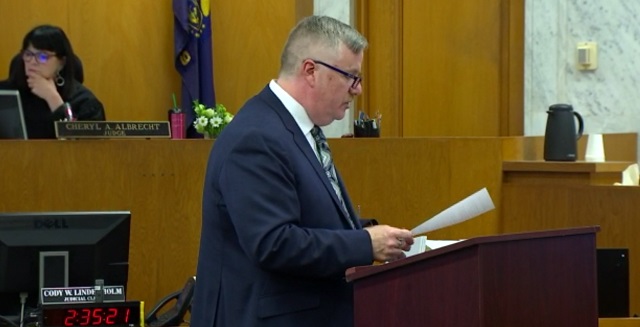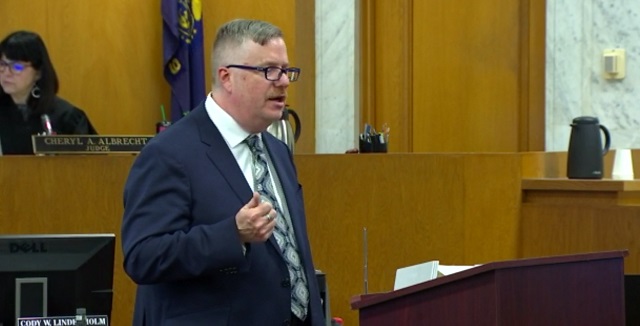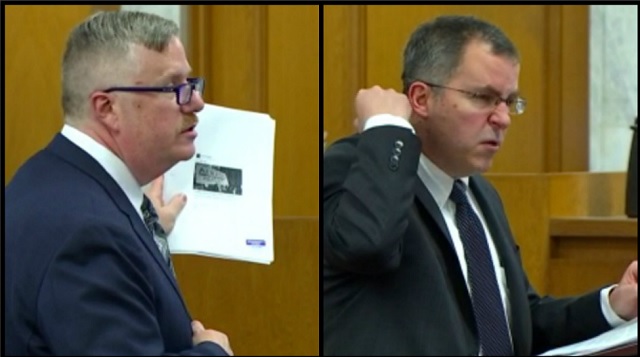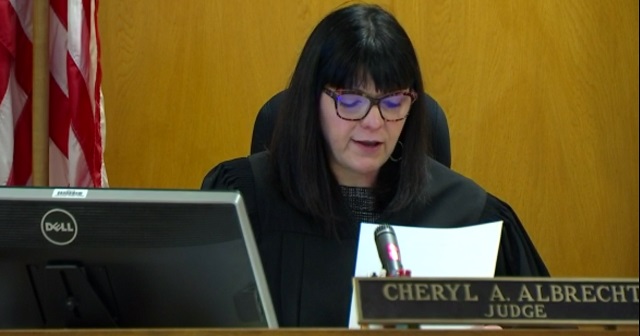PORTLAND, Ore. (KOIN) — Now it’s up to the jury.
For more than 3 weeks, 13 people — 12 jurors plus 1 alternate — listened to testimony from victims, family, detectives, investigators, psychologists, psychiatrist, friends, passengers and passersby. On Wednesday, they listened to hours of closing arguments from the prosecution and the defense.
Now, after hearing the detailed jury instructions from Judge Cheryl Albrecht, the jury will decide the fate of Jeremy Christian, the man accused of killing Taliesin Namkai-Meche and Ricky Best and critically wounding Micah Fletcher on a Green Line MAX train as it pulled into the Hollywood Transit Center on May 26, 2017.

The jurors will have to make decisions on 12 charges, all of which Jeremy Christian pleaded not guilty: two counts of first-degree murder, one count of first-degree attempted murder, one count of first-degree assault, one count of second-degree assault, three counts of second-degree intimidation, two counts of unlawful use of a weapon and two counts of menacing.
Closing arguments
“I’m about to stab some motherf—–s.”
That’s how Prosecutor Jeffrey Howes began closing arguments in the MAX attack trial of Jeremy Christian, the man accused of killing Taliesin Namkai-Meche and Ricky Best and critically wounding Micah Fletcher on a Green Line train as it pulled into Hollywood Transit Center on May 26, 2017.
Defense attorney Greg Scholl wove a different theory in his closing arguments. He told the jury Christian’s “motivation was to defend himself, not to commit murder. That’s why he’s not guilty.”
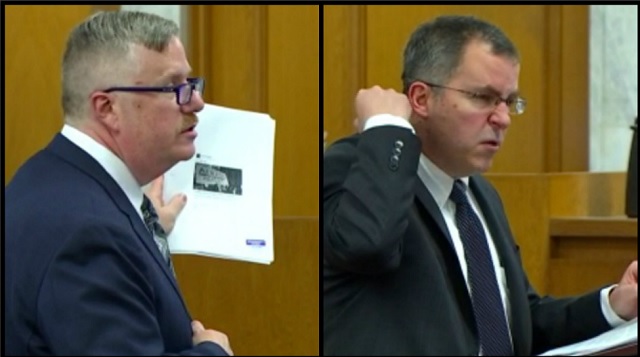
And he reminded the jurors they’re not there “to send a message to the community or to protect society.”
The closing arguments began more than 3 weeks after the trial began in Judge Cheryl Albrecht’s Multnomah County courtroom. Christian faces 12 charges, including two counts of first degree murder.
Howes went over those 12 charges the jury will decide. To convict Christian of the two murder charges, the jury must be unanimous. To reach a verdict on any of the other charges, there must be a 10-2 decision.
The jury has the option to convict Christian of second degree murder, manslaughter, or criminally negligent homicide instead of first-degree murder.
Prosecution closing arguments
Jeffrey Howes replayed video of the attack on Demetria Hester the night of May 25, 2017. His first statement was connected to the assault on Hester when Christian threw a bottle “like a bullet” at her eye as she got off a different MAX train.
Just 17 hours later, Howes told the jury, Christian would stick a knife into the necks of 3 people.
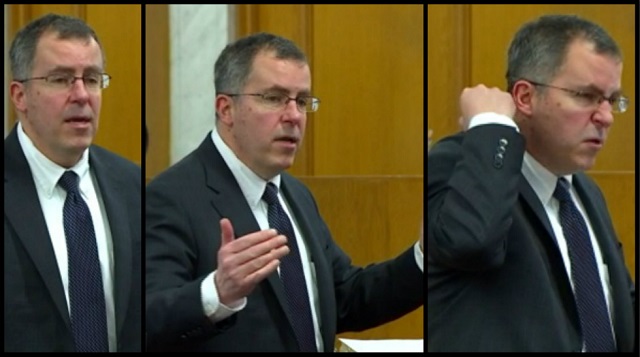
Howes went witness by witness, describing the terror experienced by 3 teenage girls on the train, calling out the heroics of people like Marcus Knipe who saved Fletcher’s life, and Morgan Noonan, who tried to save Namkai-Meche.
“If you’re ever on a train and something goes wrong, you want a person like Morgan Noonan on that train, ladies and gentlemen,” Howes said. “Army medic. Served overseas. Did what we hope anyone would do.”
When he got to Demetria Hester’s testimony regarding the incident May 25, Howes said she told Christian to shut up. “‘We don’t want to hear that. Nobody wants to hear that. But one thing we know by now, the defendant’s going to react violently if you tell him to shut up.”
“These are confessions, ladies and gentlemen,” Howes said as he recounted some of the statements Christian made after the stabbings: “I’m airing out motherf—-r’s throats” and “Hope everybody I stabbed dies.”
Prosecutors made racism and white supremacy a central theme of their closing arguments, referencing numerous statements made by Christian before, during and after the stabbing. This is particularly important because several of the charges have to do with intimidation of several people, all African American, Howes said.
Howes also emphasized the definitions and limitations of self-defense and use of deadly physical force, as well as the definition of provocation. Oregon law doesn’t allow someone to provoke others into a response so they can hurt them, Howes said, arguing that’s exactly what Christian did.
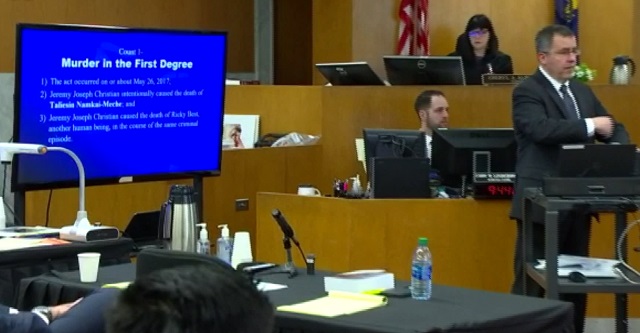
Alluding to what the defense will say in their closing argument, Howes said, “Don’t let it distract you from what you know to be true, what you’ve seen on the video…”
Later he said, “The evidence in this case is overwhelming. It’s insurmountable. It’s, it’s indisputable that the defendant did these things that were alleged.”
He called the look on Namkai-Meche’s face as he stood there, with full hands, unable to defend himself “heartbreaking.” Howes called the attack on Ricky Best, who was only standing there, not just “unprovoked” but “flat-out cold-blooded.”
The prosecution ended their closing by once again showing the jury the half-speed version of the video compilation of the events on the MAX train. When the stabbings started on the video, at least one woman in the courtroom could be heard crying.
Defense closing arguments
Attorney Greg Scholl presented the closing arguments in defense of Jeremy Christian. He began and ended by describing the “increasingly complex and crowded world” we live in, “where confronting a loud and obnoxious … person in the wrong way can lead to catastrophic results.”
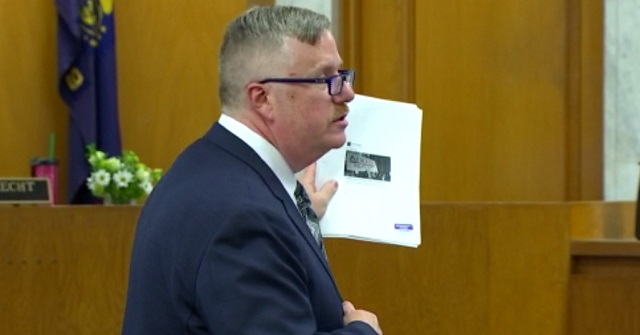
He went through witnesses, talked about Micah Fletcher’s previous interaction with Christian about a month before the MAX attack, showed pictures and discussed documents.
He highlighted discrepancies in testimony from the state’s witnesses, and some statements that helped his client’s case. For example, Walia Mohamed testified Christian did not make any comments directly toward her, Scholl said. Several people characterized Christian as crazy or “off.” Destinee Mangum testified that the defendant was “not in his right mind.”
Scholl repeatedly described Christian as a provocateur. He said the way he decided to exercise his right to free speech may have been obnoxious that day on the MAX. However, Scholl said it’s not illegal.
As in their main case, the defense presented Shawn Forde as the epitome of what someone should do when confronted with a ranting person. He kept his distance, he tried to de-escalate using humor, and he ignored Christian at one point, Scholl said.
But then Micah Fletcher arrived, Scholl said, mistakenly assuming Christian had already hit Namkai-Meche. At this point, the teen girls have already moved away from the area.
Now 3 people appeared to be ganging up on Christian, Scholl said, showing stills from the train that feature Fletcher, Namkai-Meche, and Best’s faces lined up in front of Christian.
Fletcher pushed Christian down twice, yelling in his face, Scholl said. He referenced a previous witness who testified it looked like the other men were trying to “bully” Christian.
And after the fact, Fletcher said “I didn’t go hard enough. I wish I’d knocked his ass out,” Scholl said, describing that as a vigilante attitude. Later Scholl brought up when Fletcher was asked if he would do things the same way today, he answered yes.
“Which in the face of what happened on the train is troubling, to say the least,” Scholl said.
Scholl also showed pictures of Fletcher at both the Montavilla rally and the Vancouver rally (where he was arrested). In the latter, he’s dressed in black and wearing a mask.
“That’s the person that told you that he wanted to de-escalate,” Scholl said.
Scholl also used one of the state’s experts against them. Dr. Alan Newman, the psychiatrist, said “there is no evidence that he got on the MAX that day expecting that to happen.”
“That is from the state’s best expert. A very, very, very smart guy and he’s absolutely right,” Scholl said.
The defense also refuted some testimony by Pete Simi, the state’s expert who testified about white supremacy. Attorneys argue he cherrypicked certain statements from Christian’s Facebook page and recorded statements that fit his argument and ignored others that did not.
The defense went over some of the jury instructions regarding coercion and assault in the third degree, offenses they’re arguing Christian thought were happening or at risk of happening to him.
Scholl told the jury the “defense … is not a proponent of crime, of racism or violence … people don’t deserve those things. Nor is this case a referendum on crime or racism or anything else. You’re not here to send a message to the community or to protect society.”
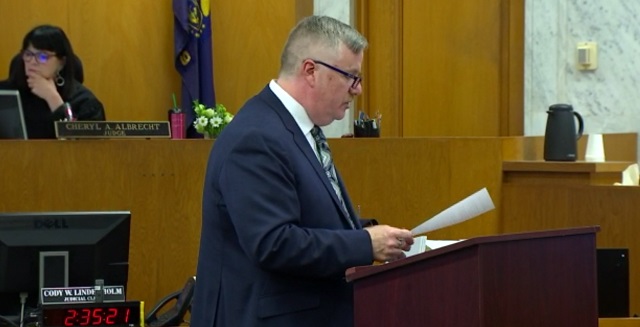
One key part of their argument is whether Christian had intent in this case and whether his intent was to murder, or to defend himself.
“We are saying that he acted in self-defense and that the state must disprove that,” Scholl said. “What happened on MAX car 415 is horrific and the deaths are beyond tragic. And it can’t be fixed. And that’s awful,” he said.
But the facts show Christian was physically confronted after exercising his free speech when he was thrown down and told to get off the train, Scholl said.
In the end, Scholl closed his arguments with this: “His motivation was to defend himself. Not to commit murder. That’s why he’s not guilty.”
Background
The 12-person jury (plus one alternate) will listen to prosecutors Don Rees and Jeffrey Howes make their case that Christian killed Taliesin Namkai-Meche and Ricky Best and critically wounded Micah Fletcher on a Green Line train as it pulled into the Hollywood Transit Center on May 26, 2017.
They will also listen to defense attorneys Greg Scholl and Dean Smith make their case that there are extenuating circumstances that led their 37-year-old client to his actions that day.
Once the closing arguments are completed, Judge Cheryl Albrecht will give the jury their detailed instructions for deliberations.
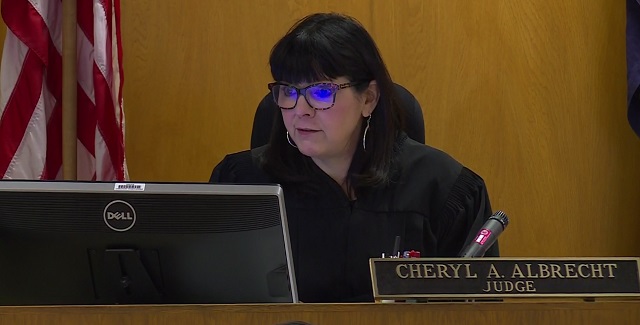
Jeremy Christian pleaded not guilty to 12 charges: two counts of first-degree murder, one count of first-degree attempted murder, one count of first-degree assault, one count of second-degree assault, three counts of second-degree intimidation, two counts of unlawful use of a weapon and two counts of menacing.
Digital reporter Hannah Ray Lambert covers the Jeremy Christian trial for KOIN 6 News and KOIN.com. Follow her on Twitter for an updated, minute-by-minute breakdown of the proceedings.
Complete KOIN Coverage: The MAX Attack Trial
KOIN 6 News will be in the courtroom each day
and provide updates throughout the case
